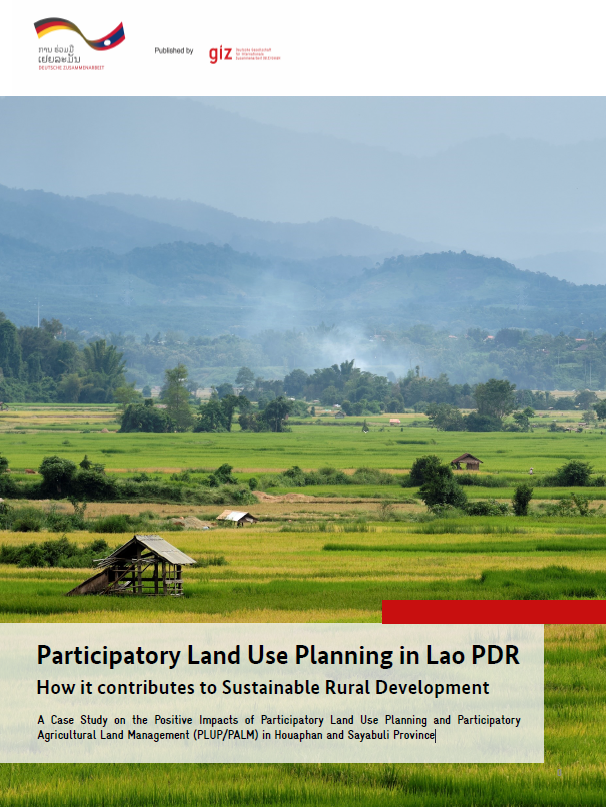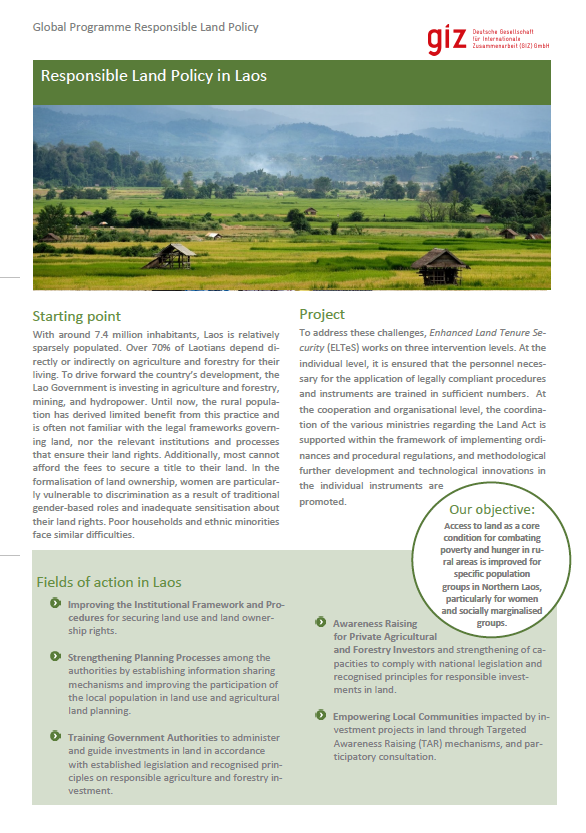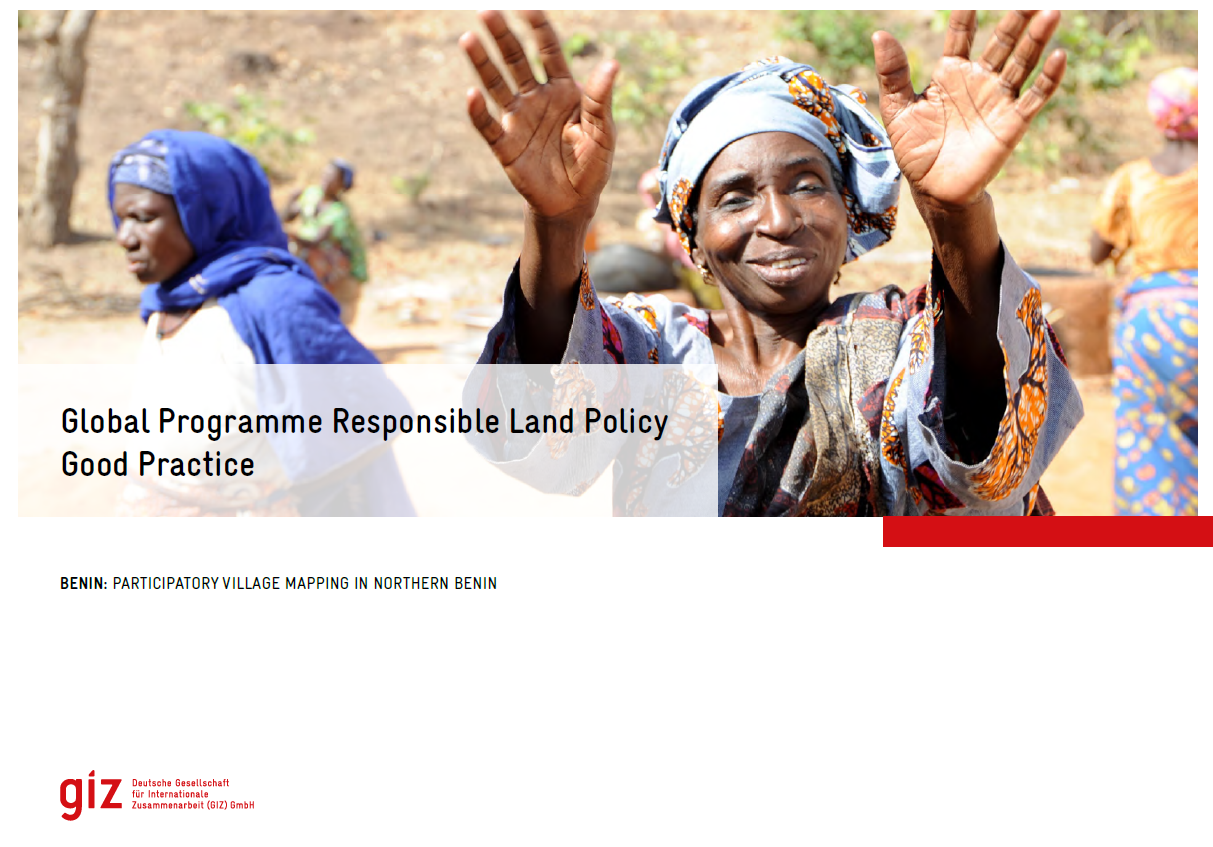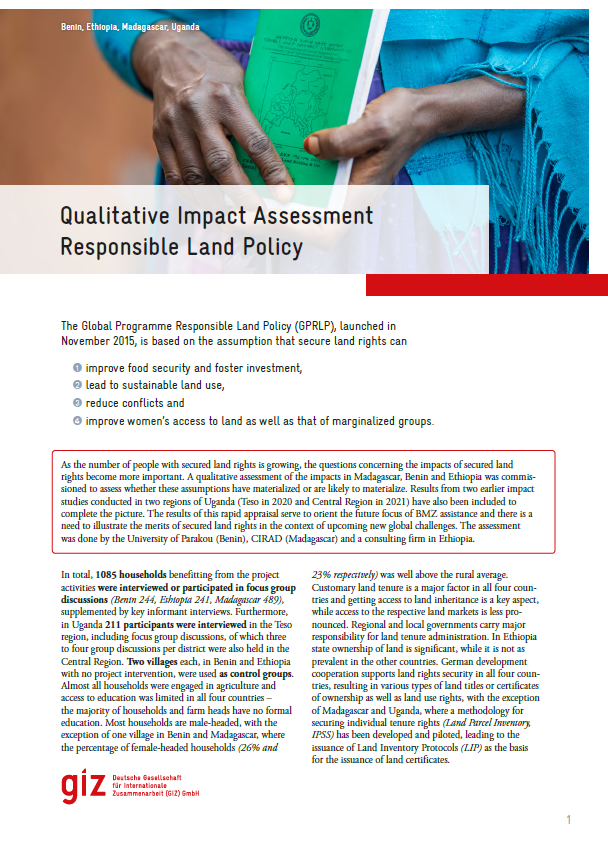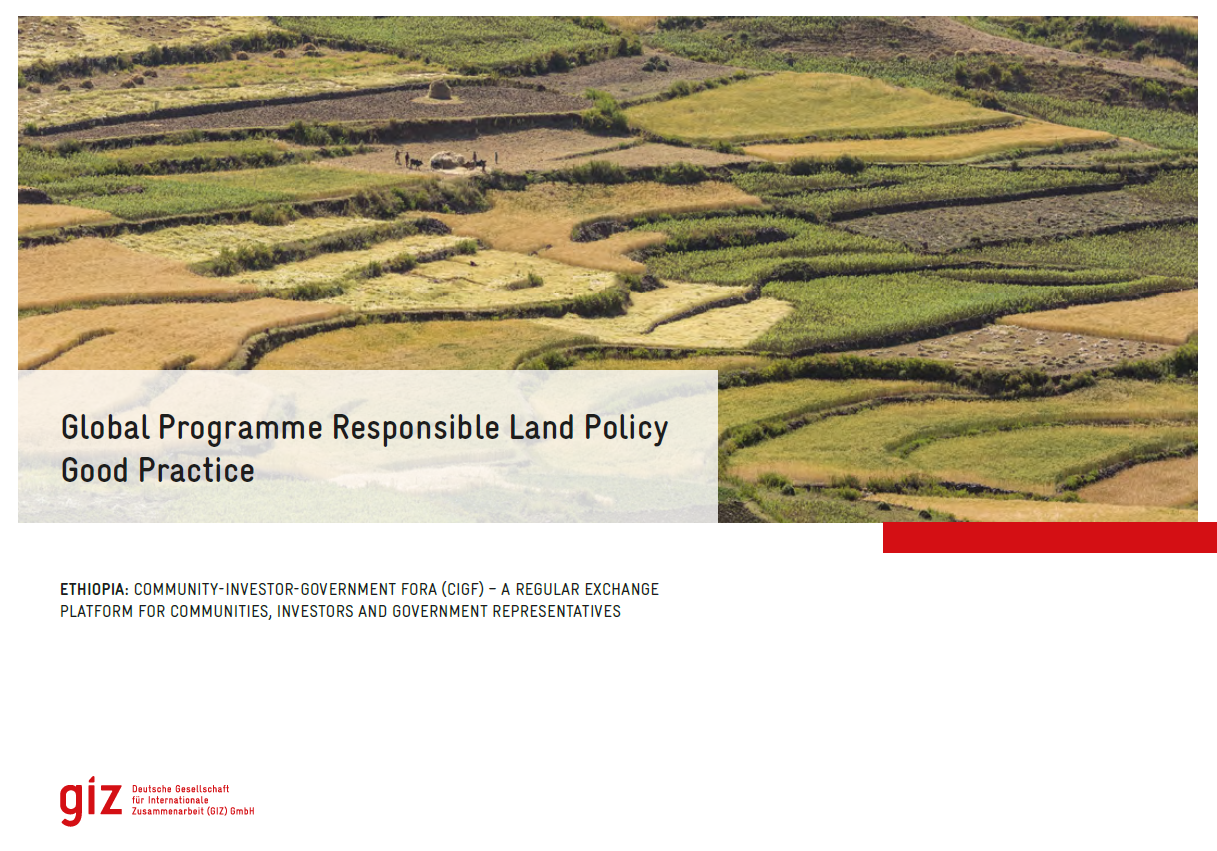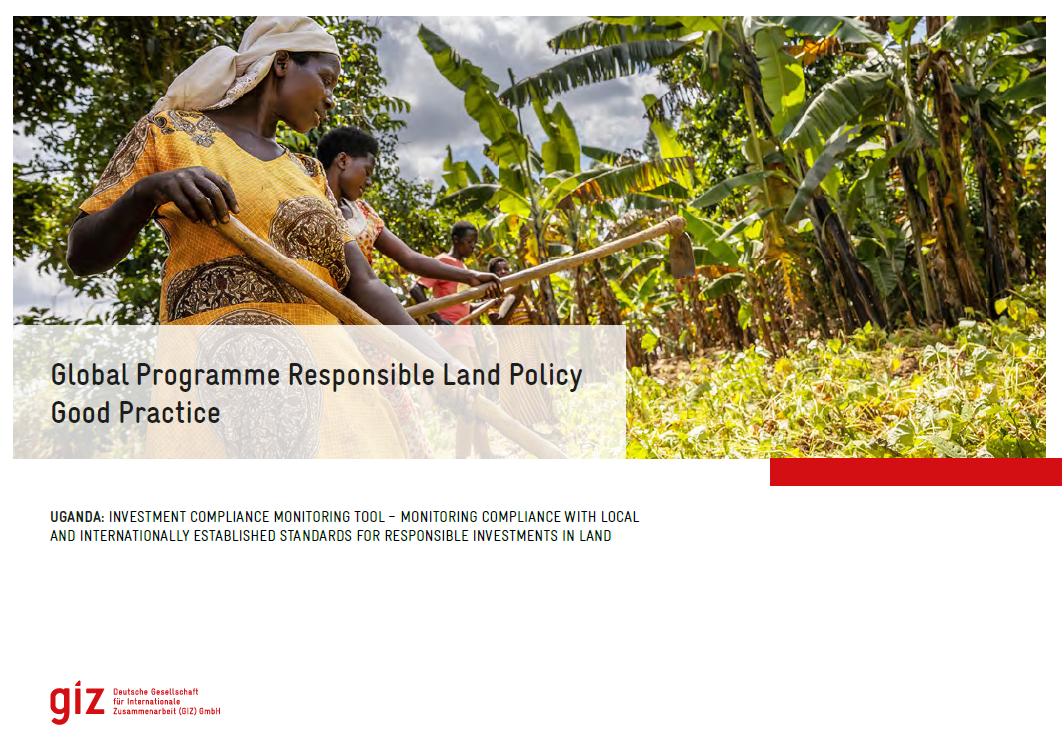
Topics and Regions
Details
Location
Contributions
Displaying 31 - 40 of 128Participatory Land Use Planning in Lao PDR How it contributes to Sustainable Rural Development
Die Landnutzungsplanung hat in der Demokratischen Volksrepublik Laos eine lange Geschichte und wird
seit den 1990er Jahren landesweit in vielfältiger Form angewendet (Ling, 2017). Im Kern schafft die Landnutzungsplanung
Responsible Land Policy in Laos - ELTeS
With around 7.4 million inhabitants, Laos is relatively sparsely populated. Over 70% of Laotians depend directly or indirectly on agriculture and forestry for their living. To drive forward the country’s development, the Lao Government is investing in agriculture and forestry, mining, and hydropower. Until now, the rural population has derived limited benefit from this practice and is often not familiar with the legal frameworks governing land, nor the relevant institutions and processes that ensure their land rights.
ໂຄງການ ສົ່ ງເສີມການຄ້ ມຄອງການລ ງທຶນທາງດ້ານທື່ີດິນ ທີື່ມີຄວາມຮັບຜິດຊອບ ໃນ ສປປ ລາວ (ໂຄງການ RGIL)
ສປປ ລາວ ມີແຜນຈະຫ ຼຸດພ ົ້ນອອກຈາກການເປັນປະເທດດ້ອຍພັດທະນາໃນປີ 2024. ເພ ື່ອກະຕ ້ນການເຕີບໂຕທາງດ້ານເສດຖະກິດ, ລັດຖະບານລາວໄດ້ເລັົ່ງໃສ່ເສດຖະກິດ ສ ົ່ງອອກທີື່ອີງໃສ່ຊັບພະຍາກອນທໍາມະຊາດ, ເຊັົ່ນ: ໂຄງການບ ໍ່ແຮ່ຂະໜາດໃຫຍ່, ການ ກ ໍ່ສ້າງເຂ ື່ອນໄຟຟ້າພະລັງນໍ້າ ແລະ ການຂະຫຍາຍການປູກພ ດກະສິກໍາ. ຈ ດສ ມຫ ັກ ແມ່ນສ ົ່ງເສີມການລ ງທຶນໂດຍກ ງຈາກຕ່າງປະເທດ ເຂ ົ້າໃນຂະແໜງກະສິກໍາ ແລະ ປ່າໄມ້, ເພ ື່ອສ ົ່ງເສີມການຖ່າຍທອດທາງດ້ານເຕັກໂນໂລຢີສໍາລັບຂະແໜງກະສິກໍາທີື່ມີ ການຂະຫຍາຍຕ ວຢ່າງກວ້າງຂວາງໃນປັດຈ ບັນ, ຊຶື່ງເກີດມີການຈ້າງງານ ແລະ ສ້າງ ລາຍໄດ້ໃຫ້ແກ່ປະຊາຊ ນທີື່ອາໄສຢູ່ເຂດຊ ນນະບ ດ.
Promoting Responsible Governance of Investments in Land (RGIL) in Laos
Laos plans to graduate from least developed country status by 2024. To spur economic growth, the Lao government builds on a resource-based export economy, major mining projects, the constructions of dams, and the expansion of plantation agriculture. A key focus is the promotion of foreign direct investment in agriculture and forestry, to promote technology transfer for intensification of the agricultural sector and thus employment and income for the rural population. However, agriculture and forestry investment projects are placing growing pressure on land as a resource.
Good Practice Benin - PVM
The Global Programme 'Responsible Land Policy' (GPRLP) is part of the Special Initiative 'One World, No Hunger' of the German Federal Ministry for Economic Cooperation and Development (BMZ), which aims to reduce extreme poverty and hunger.
Qualitative Impact Assessment - Responsible Land Policy
The Global Programme Responsible Land Policy (GPRLP), launched in November 2015, is based on the assumption that secure land rights can
➊ improve food security and foster investment,
➋ lead to sustainable land use,
➌ reduce conflicts and
➍ improve women’s access to land as well as that of marginalized groups.
Good Practice Uganda - LIP
The Global Programme 'Responsible Land Policy' (GPRLP) is part of the Special Initiative 'One World, No Hunger' of the German Federal Ministry for Economic Cooperation and Development (BMZ), which aims to reduce extreme poverty and hunger.
Good Practice Ethiopia - CIGF
The Global Programme 'Responsible Land Policy' (GPRLP) is part of the Special Initiative 'One World, No Hunger' of the German Federal Ministry for Economic Cooperation and Development (BMZ), which aims to reduce extreme poverty and hunger.
Good Practice Uganda - ICMT
The Global Programme 'Responsible Land Policy' (GPRLP) is part of the Special Initiative 'One World, No Hunger' of the German Federal Ministry for Economic Cooperation and Development (BMZ), which aims to reduce extreme poverty and hunger.
Promoting Responsible Governance of Investments in Land (RGIL) in Laos
The “Responsible Governance of Investments in Land” (RGIL) project in Lao PDR fosters investment quality promotion to ensure that agriculture and forestry investments in land are productive, contribute to sustainable land management and respect the rights and needs of local populations.

